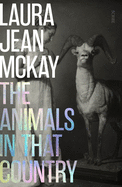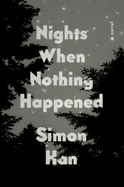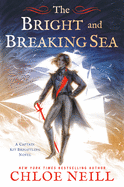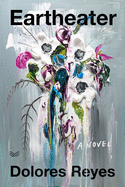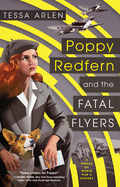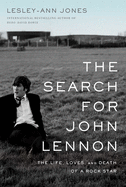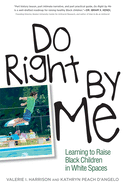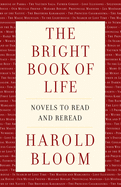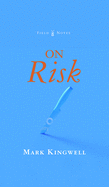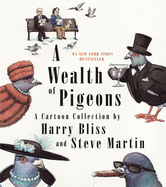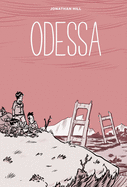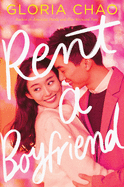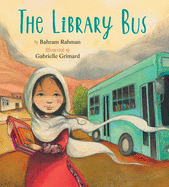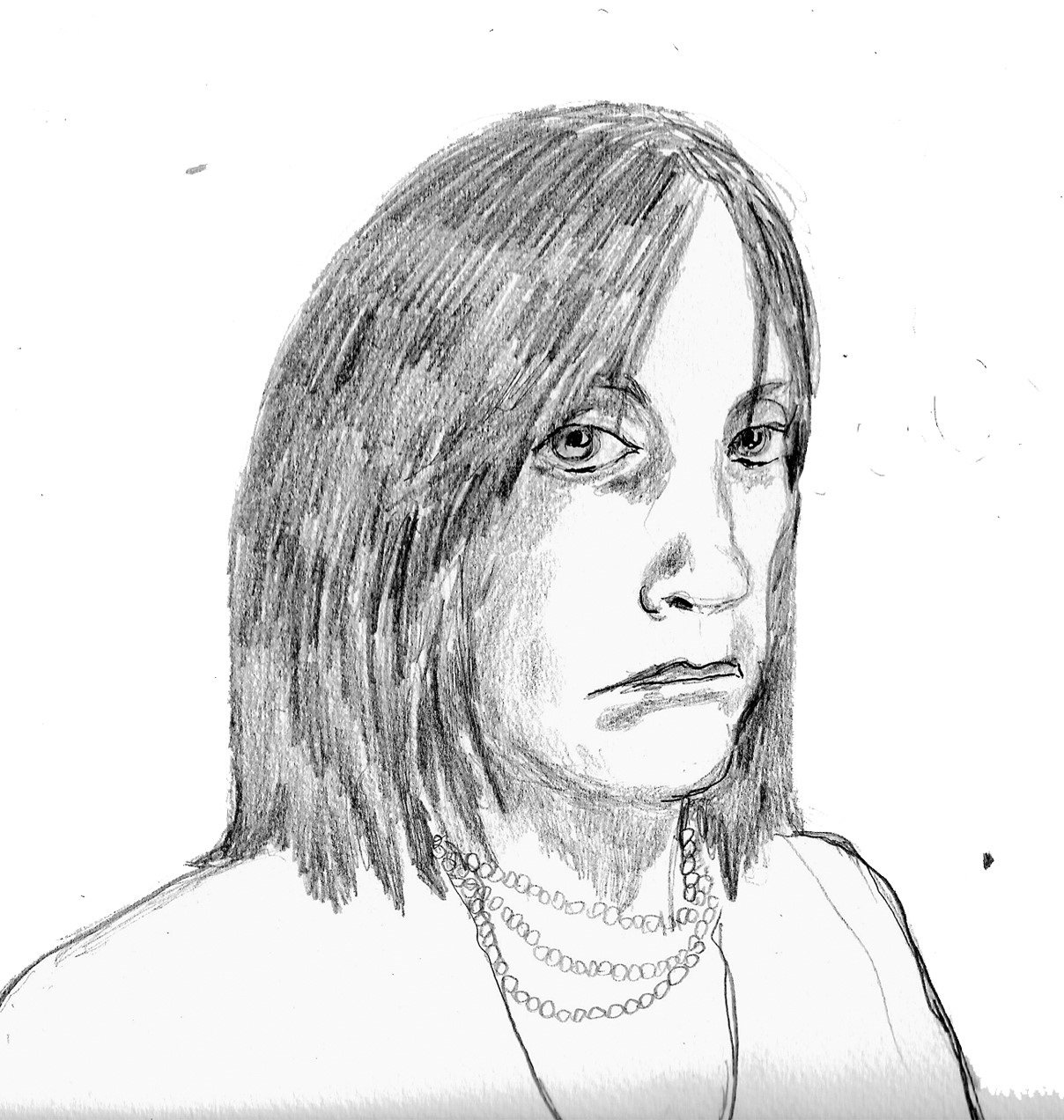 |
| image: Merrill Markoe |
Merrill Markoe is a humorist who has worked in a variety of forms involving film, television and radio in addition to writing a bunch of books of humorous essays and a few novels. She received four Emmys for her work as writer/co-creator of Late Night with David Letterman in the '80s, and in 2020 she received The Paddy Chayefsky Laurel Award from the Writers Guild of America. We Saw Scenery (Algonquin, Oct 13, 2020) is her first graphic novel.
On your nightstand now:
Because I just wrote and illustrated a graphic novel for the first time, I have been studying the work of various people who are good with the form. My favorites are Lynda Barry, Roz Chast, Mimi Pond and Daniel Clowes. But at the moment I am reading Wendy, Master of Art by Walter Scott, which is making me laugh out loud because it so perfectly captures the signature details of going to art school: e.g., the incomprehensible pretentious language and all the non-committal shrugging.
Favorite book when you were a child:
I was a big devotee of the whole Nancy Drew series. I would consume them back to back, so I can't really differentiate between the different titles. When I wasn't reading Nancy Drew, I was reading Mad magazine. In a way, it was Mad magazine that raised me and turned me into me.
Your top five authors:
Since I discovered his work in high school, I have been devoted to Kurt Vonnegut. I love his combination of direct simplicity and wild imagination. Robert Benchley's hilarious essays continue to be my favorite humor writing because of his cerebral approach to the mundane combined with complete off-the-charts silliness. He taught me my favorite way to construct comedy. I also find myself re-reading Dorothy Parker for similar reasons. When I want to relax and be comforted, I read Anne Tyler. When I want to be reminded how cool it is to be creative, I read Lynda Barry.
Book you've faked reading:
Infinite Jest. I read the opening few chapters a number of times and then just couldn't bring myself to go forward. Lately, after reading a couple of stories about the author's bad behavior with women, I gave myself permission to give up caring about reading any more.
Also, A Brief History of Time by Stephen Hawking. I worked on the first few chapters of that for YEARS because my heart loves the idea of learning about physics. I'd diligently sit down to tackle the material, pumped on what a better version of me this knowledge would create. And then I'd wake up the next day.
.jpg) Book you're an evangelist for:
Book you're an evangelist for:
Why Is It Always About YOU: the Seven Deadly Sins of Narcissism by Sandy Hotchkiss. As a child of narcissists who went on to replicate that situation repeatedly by also dating narcissists, I was ahead of the curve in my expertise on this topic.
Book you've bought for the cover:
The Mysteries of Harris Burdick by Chris Van Allsburg. It's another spooky wonder from the man who wrote The Polar Express. Boy, can that guy draw.
Book you hid from your parents:
In the fourth grade, someone passed me a copy of My Wicked Wicked Ways by Errol Flynn. I had no idea who Errol Flynn even was, but I didn't care. He had wicked ways and I wanted in.
Book that changed your life:
Robert Benchley's collected works taught me how to write funny essays. They were written in the 1920s, '30s and '40s. But they still sound contemporary because they trade in human silliness.
Favorite line from a book:
" 'Everything must have a purpose?' said God. 'Certainly,' said man. 'Then I leave it to you to think of one for all of this,' said God."
Cat's Cradle taught me how to de-construct religious thought. And every time I re-read the book, I am so taken by it that I write various lines down so I will remember them. There are so many lines in this book that I love. For example: "Science is magic that works."
Five books you'll never part with:
Lately I buy as many e-books as I can, so I never do have to imagine parting with them. But I can tell you what books I actually did take with me when I had to evacuate my house because of a raging wildfire:
My crumbling and very old copy of The Benchley Roundup
The Life of Birds by David Attenborough
What It Is by Lynda Barry
Book you most want to read again for the first time:
A Tale of Two Cities by Charles Dickens because I really enjoyed it when I read it in high school. But I have had a hard time re-engaging with Mr. Dickens after learning that he had his wife of 20 years, Catherine, committed to a mental institution so he could go off with his much younger mistress. Which reminds me of one of the bigger lessons I have learned in life: strive not to learn too much personal information about the artist. It can really ruin the art.
Three nonfiction books you learned a lot from:
I Like to Watch: Arguing My Way Through the TV Revolution: Emily Nussbaum analyzes aspects of shows I've watched in ways that never occurred to me.
Fantasyland: How America Went Haywire: Kurt Andersen presents longstanding truths about the American psyche in a way that add up to a vision of the United States as a place that has always thrived on and enjoyed being delusional.
The Gift of Fear: Gavin de Becker (a top security expert) teaches readers how to tune into the fear they may feel but have been taught to disregard in the name of self-protection and defense.
Five recent memoirs you enjoyed:
Born a Crime: Trevor Noah grew up in South Africa during apartheid. His story is stunning, he manages to make it funny and he is a very good writer.
Just the Funny Parts: Comedy writer, journalist and all-around MVP Nell Scovell has had every damn writing job under the sun. She remembers EVERYTHING that ever happened to her during her career and knows how to tell it funny.
The Customer Is Always Wrong: Mimi Pond's graphic novel memoir of her days as a waitress attending art school. Astute, beautifully drawn, carefully detailed and funny.
Room to Dream: Written by Kristine McKenna with David Lynch, it's a combination biography and autobiography of David Lynch with the two authors alternating chapters. If you, like me, have a special place in your heart for the metaphysical artsy craziness that is David Lynch, McKenna tells all and leaves no stone unturned.
Me: Elton John: I had no real interest in this story until I started to read it and found it fascinating, very nicely written and funny. I wasn't even a particularly big fan of Elton John until I read this. Now I am.
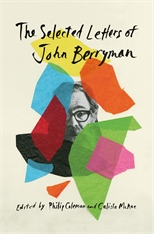 "Hell of a year, isn't it--Mr. Frost, Ted [Roethke], & now Louis [MacNiece], whom I loved. Keep well, be good, the devil roams." This sentence, also appropriate for 2020, opens a letter in 1963 to Robert Lowell that is included in The Selected Letters of John Berryman, edited by Philip Coleman & Calista McRae (Belknap Press). Sylvia Plath and William Carlos Williams also died in '63. Hell of a year indeed.
"Hell of a year, isn't it--Mr. Frost, Ted [Roethke], & now Louis [MacNiece], whom I loved. Keep well, be good, the devil roams." This sentence, also appropriate for 2020, opens a letter in 1963 to Robert Lowell that is included in The Selected Letters of John Berryman, edited by Philip Coleman & Calista McRae (Belknap Press). Sylvia Plath and William Carlos Williams also died in '63. Hell of a year indeed.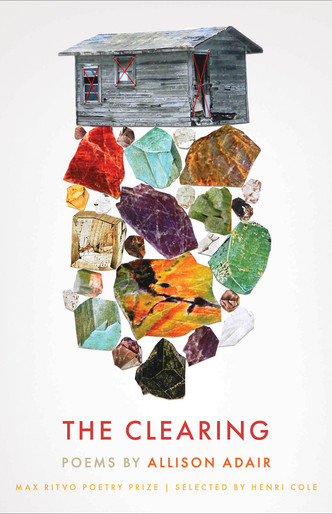 "What if this year the scrawny splinters of winter refuse/ spring's reckless flesh...," Allison Adair writes in "Fable," from her Max Ritvo Poetry Prize-winning collection The Clearing (Milkweed Editions), adding later: "Reader, every year we get this moment wrong. Do we/ know each other, our own bodies, our annual flex and bloom?"
"What if this year the scrawny splinters of winter refuse/ spring's reckless flesh...," Allison Adair writes in "Fable," from her Max Ritvo Poetry Prize-winning collection The Clearing (Milkweed Editions), adding later: "Reader, every year we get this moment wrong. Do we/ know each other, our own bodies, our annual flex and bloom?"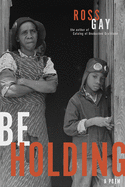 Be Holding: A Poem by Ross Gay (University of Pittsburgh Press), is a timely meditation on the world as encompassed in a single and singular move under the basket by NBA legend Julius (Dr. J) Erving, who "simply decided in the air/ to knock on other doors/ by soaring more/ --have you ever decided anything in the air?"
Be Holding: A Poem by Ross Gay (University of Pittsburgh Press), is a timely meditation on the world as encompassed in a single and singular move under the basket by NBA legend Julius (Dr. J) Erving, who "simply decided in the air/ to knock on other doors/ by soaring more/ --have you ever decided anything in the air?"



.jpg) Book you're an evangelist for:
Book you're an evangelist for: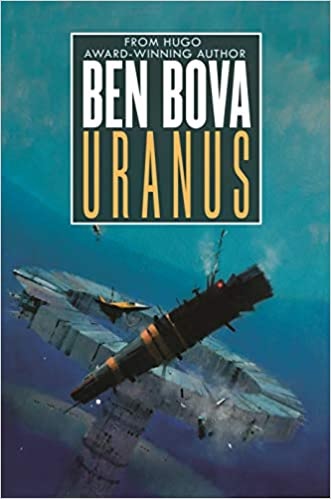 Ben Bova, scientist, multiple Hugo Award winner, and prolific science fiction author and editor, died on November 29 at age 88. Bova wrote more than a hundred books, edited some of science fiction's best-known publications, was president of the Science Fiction and Fantasy Writers of America (SFWA) for two terms and was president of the National Space Society. He was a technical editor for Project Vanguard, the U.S.'s first effort to launch a satellite into space in 1958, then worked as a science writer for Avco Everett Research Laboratory, which built the heat shields for the Apollo 11 module. Bova published his first novel, The Star Conquerors, in 1959, and followed up with dozens of others, as well as numerous short stories that appeared in, among other publications, Amazing Stories, Analog Science Fact and Fiction and Galaxy Magazine.
Ben Bova, scientist, multiple Hugo Award winner, and prolific science fiction author and editor, died on November 29 at age 88. Bova wrote more than a hundred books, edited some of science fiction's best-known publications, was president of the Science Fiction and Fantasy Writers of America (SFWA) for two terms and was president of the National Space Society. He was a technical editor for Project Vanguard, the U.S.'s first effort to launch a satellite into space in 1958, then worked as a science writer for Avco Everett Research Laboratory, which built the heat shields for the Apollo 11 module. Bova published his first novel, The Star Conquerors, in 1959, and followed up with dozens of others, as well as numerous short stories that appeared in, among other publications, Amazing Stories, Analog Science Fact and Fiction and Galaxy Magazine.